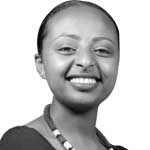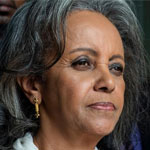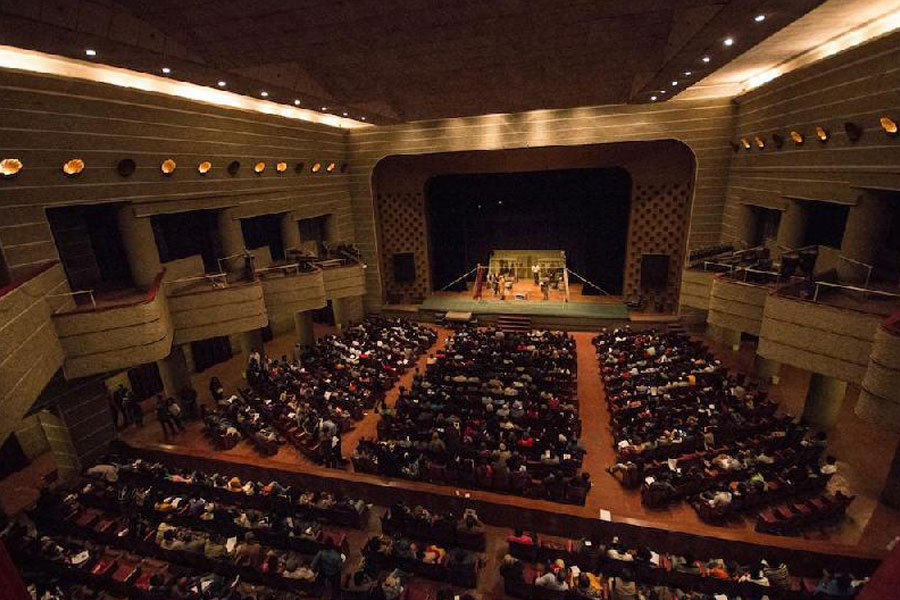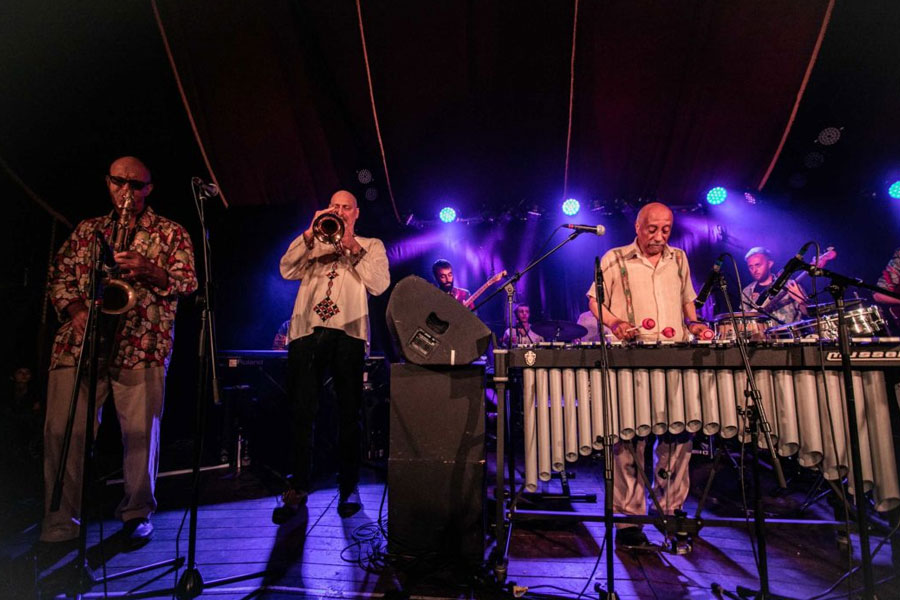
Radar | Nov 03,2024
Mar 23 , 2019
By Tsion Fisseha
In an interview conducted two years ago, Zumra Nuru, founder of the Awra Amba community in the Amhara Regional State, said that at a very young age he began to sincerely observe his community. It was one infested with gender inequality.
With that in mind - and with some other societal concepts he believed needed altering - he introduced a highly progressive idea that is still far from what most societies in and outside Ethiopia understand to be true. He founded the then-19 member community in the 1980s.
This evolved community did not feel the need to assign gender roles or box people into pre-determined social functions just because of the way they were born. It was and still is a firm believer in gender equality, the rights of children and helping the less fortunate and the ill.
Recently, certain activist groups in Ethiopia have tried to follow in the footsteps of Zumra and have attempted to tackle the parity that is lacking between female and male roles. More often than not, these groups have been called out for their “extremist” views and have been shunned for trying to change the societal structure that has been there since the beginning of time.
Gender roles are assigned through the societal assessment of what femininity and masculinity mean. On the occasion of International Francophonie Day, Alliance Ethio-Francaise organised a poetry platform curated by a poetry group to address femininity and masculinity.
The poems were presented in front of an audience enthusiastic with the exploration of the concepts. Both men and women felt the need to dig deep within themselves and to the people around them and understand what it means to be a female with masculine characteristics and vice versa. It was about what these characters are and how they are manifested throughout one’s life.
In the first stage, the poems attached weakness and fear to the feminine character and strength and insensitivity to the masculine. But the poems evolved. They started pushing the limit of societal beliefs in gender roles and assignments, in being far from male or female but a human being first.
They are grounded in the understanding that both sexes are entitled to characteristics of the opposite sex, how the assignments of mothers and fathers, sons and daughters, do not have a clear cut law on role allocation. The poems addressed how having done this does not necessarily lead to the destruction of a system that has been working for aeons but makes it less dangerous and more comfortable.
The session came to a close with a group poem that entailed that the women and men knew each other, and this knowledge would somehow lead to understanding one another and ultimately changing the way everything and everyone in the vicinity functions.
Zumra understood that either males or females could prepare meals and clean houses. He also believed that farming and carrying did not necessarily require a man. He thought that the cross-over would not make society crumble.
He understood that men could be nurturing, sensitive, vulnerable and tolerant just as much as women could be protectors and providers with the will and the strength to carry burdens. Because of this belief, he built a community that flourishes every passing year.
One cannot help but wonder if this concept and ideology of the Awra Amba community can spread across the globe and what would change as a result.
What it would be like to live in a world where gender equality is a concept that was taught in history classes as a notion of the past?
PUBLISHED ON
Mar 23,2019 [ VOL
19 , NO
986]


Radar | Nov 03,2024

Verbatim | Jan 07,2022

Exclusive Interviews | Dec 23,2023

View From Arada | Mar 19,2022

Sunday with Eden | Jul 17,2022

Sunday with Eden | Jul 17,2022

My Opinion | Oct 23,2021

View From Arada | Apr 10,2021

Fortune News | Sep 14,2019

Commentaries | May 23,2020

My Opinion | 131584 Views | Aug 14,2021

My Opinion | 127940 Views | Aug 21,2021

My Opinion | 125915 Views | Sep 10,2021

My Opinion | 123539 Views | Aug 07,2021

Dec 22 , 2024 . By TIZITA SHEWAFERAW
Charged with transforming colossal state-owned enterprises into modern and competitiv...

Aug 18 , 2024 . By AKSAH ITALO
Although predictable Yonas Zerihun's job in the ride-hailing service is not immune to...

Jul 28 , 2024 . By TIZITA SHEWAFERAW
Unhabitual, perhaps too many, Samuel Gebreyohannes, 38, used to occasionally enjoy a couple of beers at breakfast. However, he recently swit...

Jul 13 , 2024 . By AKSAH ITALO
Investors who rely on tractors, trucks, and field vehicles for commuting, transporting commodities, and f...

Jun 28 , 2025
Meseret Damtie, the assertive auditor general, has never been shy about naming names...

Jun 21 , 2025
A well-worn adage says, “Budget is not destiny, but it is direction.” Examining t...

Jun 14 , 2025
Yet again, the Horn of Africa is bracing for trouble. A region already frayed by wars...

Jun 7 , 2025
Few promises shine brighter in Addis Abeba than the pledge of a roof for every family...

Jun 29 , 2025
Addis Abeba's first rains have coincided with a sweeping rise in private school tuition, prompting the city's education...

Jun 29 , 2025 . By BEZAWIT HULUAGER
Central Bank Governor Mamo Mihretu claimed a bold reconfiguration of monetary policy...

Jun 29 , 2025 . By BEZAWIT HULUAGER
The federal government is betting on a sweeping overhaul of the driver licensing regi...

Jun 29 , 2025 . By NAHOM AYELE
Gadaa Bank has listed 1.2 million shares on the Ethiopian Securities Exchange (ESX),...